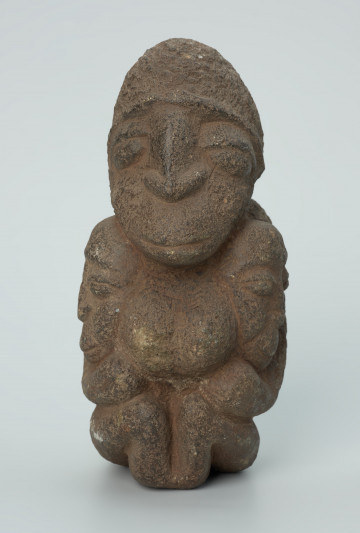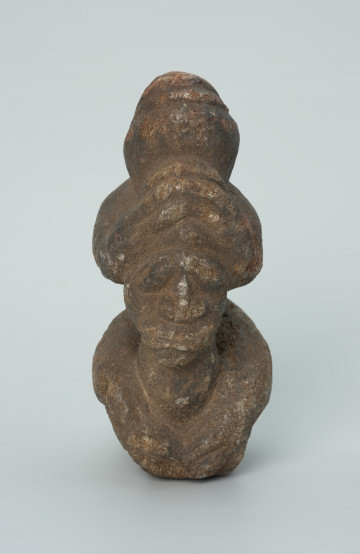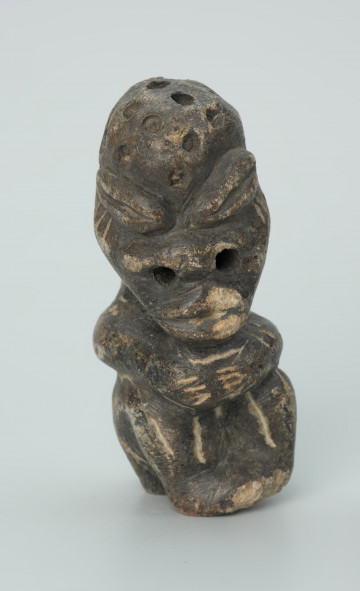
Figure of cult of dead
1901 — 1973
National Museum in Szczecin
Part of the collection: Stone figurines from West Africa
One of the most popular representations of nomolisia (singular nomoli) sculptures is the image of an adult figure accompanied by a child. The presented nomoli figure shows a human figure, most probably a woman with a child on her back.Steatite figures found during agricultural work or diamond prospecting by contemporary inhabitants of Sierra Leone, Guinea and Liberia are known in the Mende language as nomolisia, and in the Kissi language as pomda or pomta (singular pomdo). Both figurines are not products of their current users, who read their appearance as good omens. The Kissi regard them as manifestations of dead ancestors. They place the dug-out pomdo on family altars dedicated to the dead and ancestors. The Mende, on the other hand, believe that nomolisia were made by earlier inhabitants or spirits. They consider the found carvings as spirits looking after the crops and call them ‘rice deities’ to whom they make offerings, asking for a good harvest. Apart from their function, nomolisia and pomda sculptures also differ in appearance. Nomolisia sculptures usually depict a human figure sitting, with a large and round head set on a massive neck, with bulging eyes, a wide nose with well-defined nostrils and a full mouth. Pomda figures, on the other hand, present a human figure in a sitting position with the legs contracted (their knees are often under the chin). They are distinguished by an elongated face with expressive, thick features, convex eyes and a wide and flat nose. Both nomolisia and pomda are nowadays regarded as good luck figurines
Katarzyna Findlik-Gawron
Author / creator
Dimensions
cały obiekt: height: 21,7 cm, width: 8,1 cm
Object type
figure
Creation time / dating
Creation / finding place
Identification number
Location / status

1901 — 1973
National Museum in Szczecin

1901 — 1967
National Museum in Szczecin

1901 — 1971
National Museum in Szczecin
DISCOVER this TOPIC
Museum of King Jan III's Palace at Wilanów
DISCOVER this PATH
Educational path